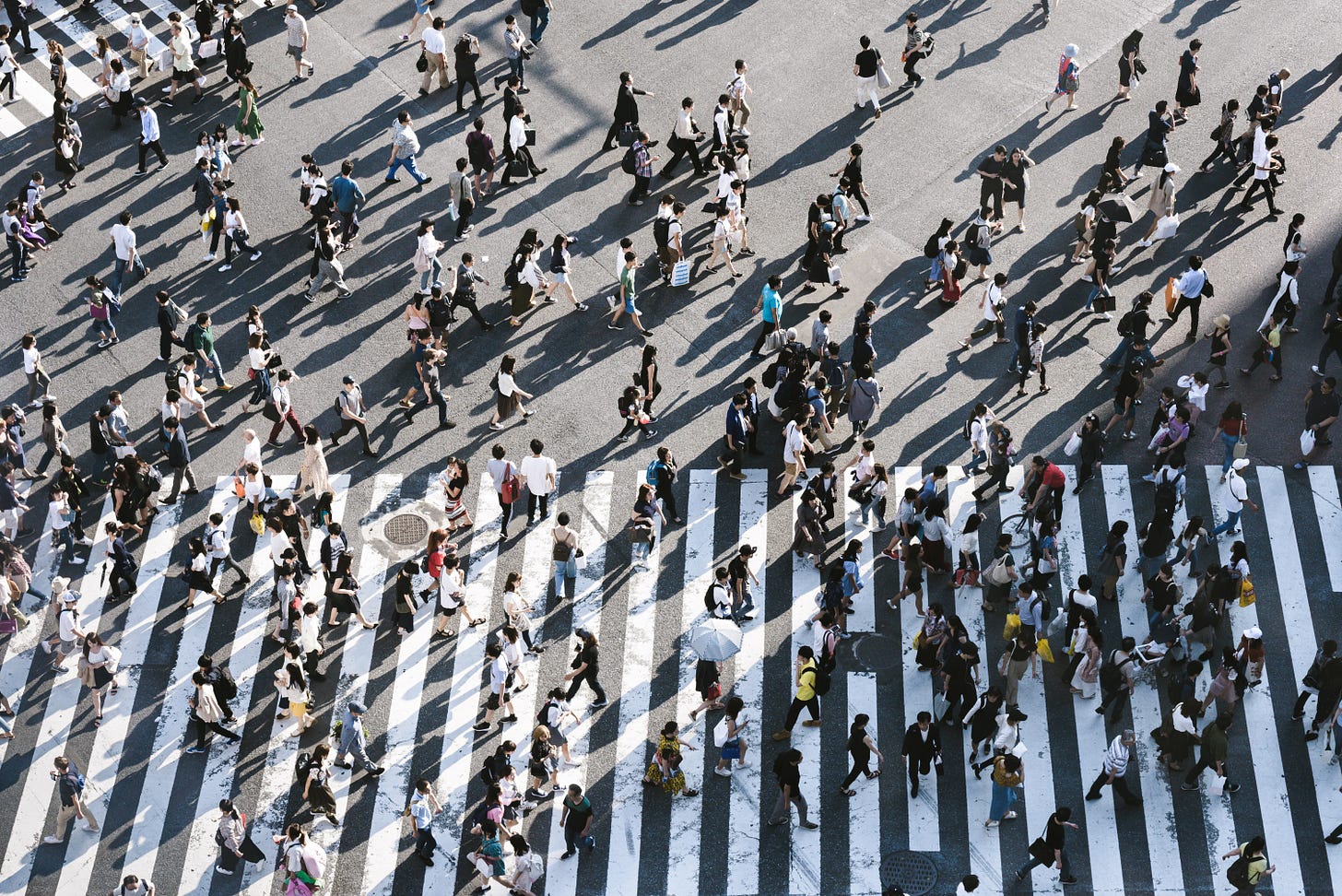People support lockdown but then ‘flock’ to the shops: Why?
How we need to take care interpreting apparent contradictions between what people say and what they do
The recently imposed lockdown in the UK has sparked debate about the apparently contradictory nature of the public’s support of lockdown alongside the way in which people “flocked” to the shops and headed to restaurants and bars.
Picking up on an article by Larry Elliot, economics editor of The Guardian, this can seem illogical: “The number of Covid-19 cases was increasing; the public said it supported tougher measures; ergo they should have been hunkering down even before the new restrictions came into force.”
I think it’s important for us to make sense of these apparent contradiction as it is easy to jump to conclusions that lead us to assume people simply cannot be trusted either to accurately self-report or to adhere to guidance. I have a number of points, suggesting that explanations of behaviour can often be a little more nuanced than may first appear.
The general public can hold more than one thing as true:
Yes, tougher measures are supported to protect the health of the population but at the same time we can still want to go out to the shops, out to eat and so on. Our motivations are multi-faceted and can pull in different directions.
We need to recognise that, at this point, going to shops, bars and restaurants was perfectly legal and within the guidelines.
People are not necessarily flocking:
The term ‘flocking’ that Larry Elliot uses suggests a sudden motivated rush. One of the statistics used to support this claim is a 70% increase in bookings from Open Table, a site that tracks online restaurant reservations. This may tell us something, but a solid, representative reflection of behaviour of the population it is not!
The other number which is quoted is footfall in retail parks, which in the three days leading up to the lockdown was above 2019 levels for the first time since the Covid-19 crisis began. Now, I am not sure what footfall looks like mid-week in a grey-November but I suspect it’s not all that difficult to beat. So I am not convinced at this point there was a huge increase overall.
In any case surely it is not an unreasonable thing to (legally) stock up on things that we are likely to need prior to lock-down – and as any economist will tell you, cliff-edges will bring purchases forwards. Many people were simply doing a little extra and perfectly sensible purchases rather than necessarily ‘flocking’ to the shops. A lot of people doing a small extra action can account for a lot of people eating out. The ‘flocking’ argument feels like a re-run of the discussion of ‘panic buying’ that was taking place in lockdown 1. This was revealed to be less about ‘panic’ and more the perfectly reasonable response of people to buy a little extra for the time they were spending at home.
We can trust many of the things that people tell us
Should we pay less attention to what people say and more to what they do? Elliot cites Paul Ormerod who suggested that “people reveal what they prefer not in the answers they give to opinion pollsters but in their actions. It’s how they behave that counts.”
The example given is the apparent surge in inquiries for foreign holidays next year upon news of a possible vaccine. The point was made that “Despite what they might say to pollsters about the importance of cutting down on air travel to tackle climate change, the revealed preference of many individuals was to jet away to the sun as soon as they possibly can.”
But surely, we can challenge the logic (and indeed evidence). Recent Ipsos UK polling data suggests that with climate change considerations in mind, 39% of people are very or fairly likely to not fly or replace some of their flights with train or bus journeys. This still leaves rather a lot of people who would be willing to take as many flights as they saw fit. Or maybe a lot of people have, de-facto, taken fewer flights due to COVID, so booking one flight for a summer holiday next year may still seem a climate friendly option (compared to the number of flights they may otherwise have taken). We would not really know what the answer is here unless we asked them.
Paul Omerod suggests that “A fundamental concept of economic theory is that of revealed preference. People’s preference can be most reliably inferred not from the answers given to questions in surveys, but from the actual decisions which they make and the actions which they carry out.”
The challenge here is, as in the example above, is that behaviour is driven by a complex assortment of beliefs, attitudes, values, motivations and intentions; all of these are only really accessible by people expressing what they think: market researchers and behavioural scientists can then collect and interpret this in a meaningful way. Behaviour in and of itself is one (and a very important) part of the jigsaw but it is not sufficient to explain why people are doing the things they do.
In conclusion
On the whole the evidence suggests that people are pretty adherent to government guidelines so it can be puzzling when people appear to act to the contrary. But as we can see, alternative explanations that still maintain good intentions on the part of the individual are very credible. To me at least, this suggests that while the economists perspective is certainly meaningful, behaviour makes much more sense when we can draw on the perspective of market researchers and behavioural scientists!


